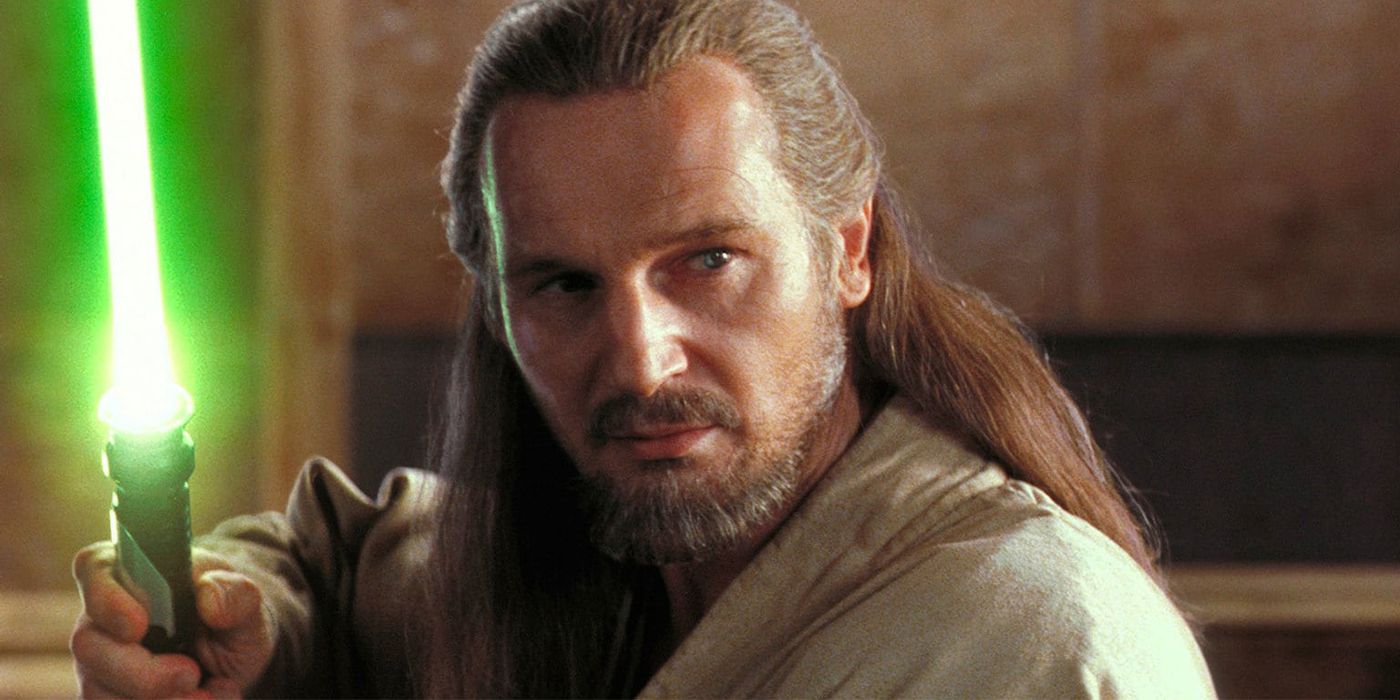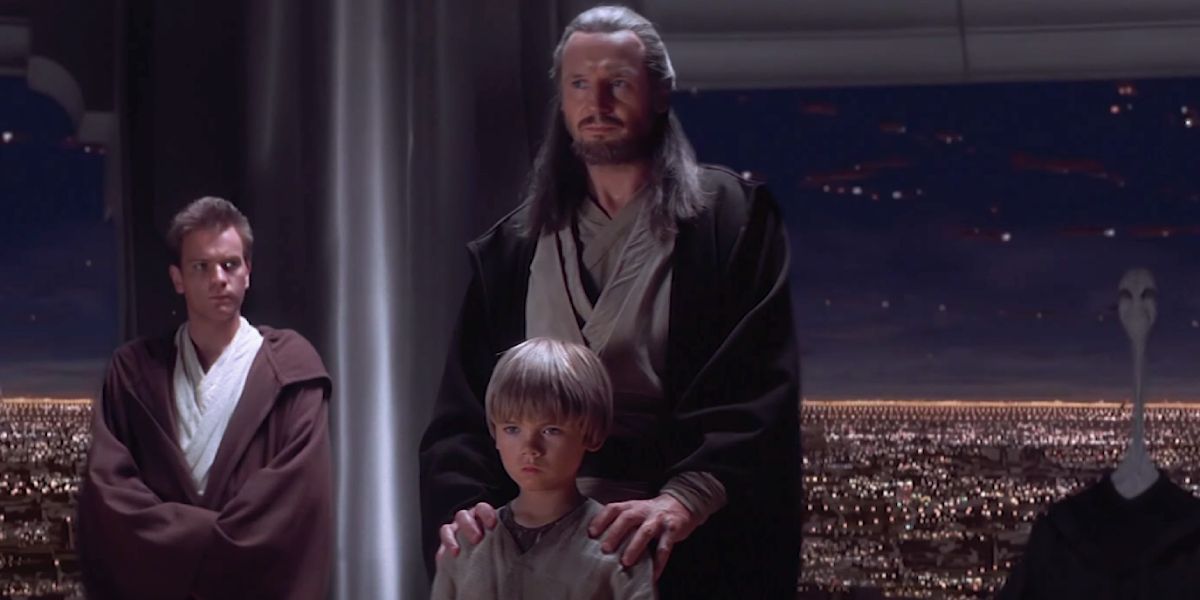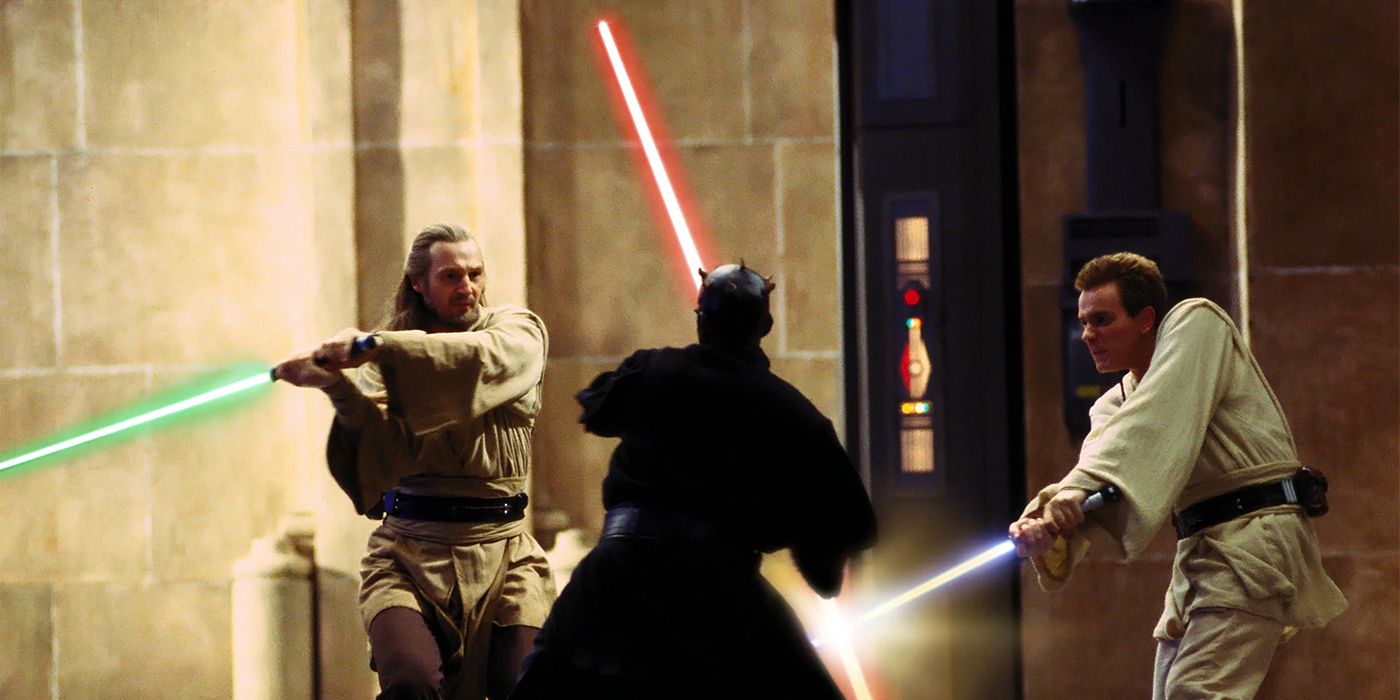Star Wars: The Phantom Menace introduced one of the most iconic fights in cinematic history: the lightstaber battle on Naboo between Darth Maul, Obi-Wan and Qui-Gon Jinn. From the music -- John Williams' instantly memorable, and repeatedly referenced, "Duel of the Fates" -- to the choreography, the fight offers the perfect climax for what ultimately is the true start of Anakin Skywalker's story. However, a recent conversation with Star Wars producer Dave Filoni offers further insight into the true meaning, and stakes, of what he refers to as the Duel of the Fates.
Many fans regard Filoni as the successor to George Lucas. He was taken under Lucas' wing during production of the prequel trilogy and directed the Star Wars: The Clone Wars alongside his mentor. Filoni has also directed multiple episodes of The Mandalorian and featured in the behind-the-scenes show called Disney Gallery: The Mandolorian.
In Episode 2 of Disney Gallery: The Mandalorian, Filoni sits at a table with other directors, including Jon Favreau and Bryce Dallas Howard, to talk about Star Wars. He then goes on a tangent about the prequel trilogy, explaining the movies are unique because Lucas thinks about Star Wars in a different way than most. Filoni mentioned that, while the is obviously a good-versus-evil situation, it's actually all about Anakin Skywalker.
As the lightsaber fight plays out onscreen, Filoni said, "What's at stake is really how Anakin is gonna turn out. Because Qui-Gon is different from the rest of the Jedi... He's the father Anakin needs." This statement contextualizes the fight in a better way than many fans have in the past. The start of Anakin's downfall is when he is taken away from his mother, but Qui-Gon would've provided the parental figure he needed all along. Yet, with his untimely death, Obi-Wan was forced to take on the apprentice due to a promise.
While Anakin and Obi-Wan grew to have a close relationship, Obi-Wan was more of a best friend than a father figure. Even at the end of Star Wars: Revenge of the Sith, Obi-Wan defeats Darth Vader on Mustafar and says, "You were my brother, Anakin. I loved you!" But as Filoni explains, Anakin needed a father, not a brother.
Filoni also mentions just how different Qui-Gon was to the other Jedi. As the prequel trilogy released, some criticized that the Jedi didn't feel like the knights depicted in the original movies. Yet, this was intentional from Lucas, as he wanted to show how they had lost their way and that Qui-Gon still stood for what they once were. Filoni then gives the example that Qui-Gon was the only person in the movie to not insult Jar Jar and saw his true value.
All of this from The Phantom Menace leads up to the ending of Star Wars: Return of the Jedi. As Luke lays on the floor of the throne room being electrocuted by the Emperor, Anakin decides to be the father he never had and doesn't let him share the same fate he suffered all those years ago.



